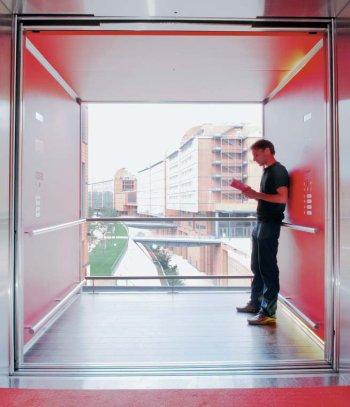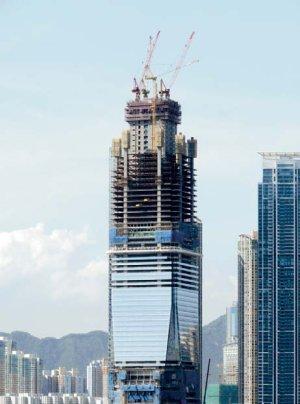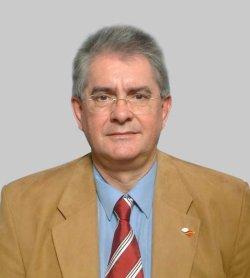Going Up?

By Peter Harris
Learning the hard way
Global elevator and escalator manufacturing giant, Schindler, came to Japan in the late 1980s, entering the market via the acquisition of Nippon Elevator Industry Co Ltd. Its business here expanded and by the millennium, the company had made real inroads into the market—launching the Japan market specific Schindler 300J in 1997 and winning the elevator system contract for the Millennium Tower in 2000.
And then disaster struck. In 2006, a 16- year-old boy was killed in an elevator installed by Schindler. The company was slammed in the Japanese press and are now facing the possibility of legal repercussions. The facts of the accident are contested but there is arguably a strong case to be made in Schindler’s favor. For one, they had lost the maintenance contract on the elevator in question, prior to the accident, to a cheaper service provider. However, despite ambiguity over the facts and culpability, there is no doubt that the handling of the crisis was a PR catastrophe. Gerhard Schlosser, who took over as Representative Director in early 2007, told us: “There was definitely a problem with risk management at the time and we have learned a number of lessons. The number one problem was that we did not offer proper condolences to the bereaved family after the accident.”
This key point also became a main focus for the media. In other markets, an outright apology can be seen as an admission of guilt—in Japan, it is not only expected, but the wording and nature of that apology is extremely important. According to Schlosser, this blunder backed the company into a corner from which they couldn’t escape—it would come up again and again in reports that sought to portray Schindler as negligent, cruel-hearted and evil. The facts of the actual accident seemed to become less relevant than the reaction to the tragedy.
It is probably a good lesson for any multinational that in a crisis situation, flying in the big chiefs from headquarters is not necessarily going to solve the problem.
In terms of business, the fallout was very damaging. Staff left, sales froze and a police investigation got underway. To compound matters the organization went into panic mode, flying out people from headquarters in Switzerland to manage the situation which, in doing so, sidelined the local management. For Schlosser, this was another serious problem, “employees were getting the information from the media and not from the company. There was a lack of internal communication that was very damaging.” It is probably a good lesson for any multinational that in a crisis situation, flying in the big chiefs from headquarters is not necessarily going to solve the problem, particularly when the local cultural context is so different.
 Hong Kong's tallest building, the International Commerce Center
Hong Kong's tallest building, the International Commerce Center
With 18,000 units operating in Japan, the company’s work here is too large to warrant going home—even without any major new contracts it is obliged to deliver maintenance and deliver on existing projects. Since then many of the personnel have changed and the company has had to be creative in terms of its recruitment strategy. Schlosser has had to find candidates who are aware of Schindler’s good international reputation and look for individuals who have had less traditional educational histories than those demanded by major Japanese corporations. He has also worked hard to instill a sense of pride among employees and, leading by example, he and the management team wear the company logo embroidered on their shirts.
Onward and upward
Given the circumstances which he must have known he would have to face, it is a fair question to ask Mr Schlosser why on earth he took up the position. Since he first came to Japan in 1981, Schlosser has had an impressive career and his last position was as Representative Director for Henkel, the technology, adhesives and cosmetics products manufacturer where during his ten-year tenure he gained valuable experience of dealing with the Japanese media. With a good understanding of Japanese culture, Schlosser has embraced the challenge and has prioritized internal change within the organization. He also knows how to manage distant headquarters and act as a go-between for local vs. global operations.

In the industry too, the accident raised awareness about safety issues and many of the big manufacturers tightened their practice. However, there are still relatively frequent reports of problems. For example, in May of this year an escalator stopped suddenly in Nagoya causing injuries. Schlosser explains that although the company has had to learn many lessons, Japanese regulators also received a wake-up call after the accident. Japanese regulatory authorities have looked at their rules and guidelines critically—since the accident there has been a review and it is likely that some major changes will come.
 Gerhard Schlosser is President & Representative
Gerhard Schlosser is President & Representative
Director of Schindler Japan KK. He has worked in Japan since 1981 and proudly wears the Schindler logo on his shirt.
Looking to the future, there have been some interesting developments. Schindler installed the escalators on the Toei Oedo subway line and worked on projects in Tokyo Midtown. Most recently, the company installed every escalator on all 13 stations of the Nippori-toneri Liner, a new transport system that opened in March this year. Until the official inquiry is over however, the company is remaining quiet in terms of its approach to media, neither rebutting nor responding to statements while continuing to hold its head up high on the job. In particular, Schlosser hopes that more and more Japanese will come to learn of the company’s achievements abroad, particularly as it works on major projects in the region, such as the International Commerce Center in Hong Kong that will be completed in 2010. Ultimately, Schlosser sees that the company does have a future in Japan and the lessons it has learned will be pivotal in building it. JI
This article first appeared in the form of a J@pan Inc Newsletter (JIN) that covers business, political and social trends in Japan. To receive JIN for free every Wednesday, and to sign up for other J@pan Inc newsletters, just visit: www.japaninc.com/newsletters/free_sign_up





